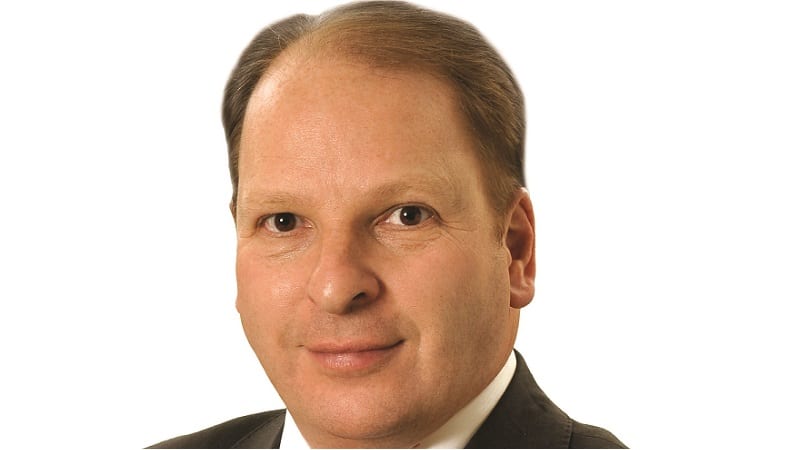Discretionary fund managers are predicting 2022 could mark a major turning point for the beleaguered equity income sector as inflation and interest rates look set to trend higher.
Equity income funds came back fighting in 2021 after a brutal period the year before, marred by dividend cuts and cancellations during the onset of the coronavirus pandemic.
The Investment Association Global Equity Income and UK Equity Income sectors were among the top-10 strongest performers last year, generating an average return of 18.7% and 18.4% respectively, according to FE Fundinfo. This was slightly better than the Global and UK All Companies sectors, which were up 17.7% and 17.3%.
And the outlook for 2022 appears even brighter. Inflation has been bounding higher as the global economic recovery from the coronavirus pandemic and supply shortages push prices higher. The US consumer price index surged above 7% in December and the UK’s own readout is forecast to hit a 30-year high of 5.2% on Wednesday.
Off the back of this, analysts are pencilling in a higher number of interest rate rises than anticipated, creating further headwinds for high growth stocks, trading on sky high valuations.
Income investing will be back ‘big time’
“My big call for next year is income investing is back big time,” says BMO Gam multi-manager co-head Gary Potter (pictured).
Potter believes higher inflation is becoming more ingrained and is not a fleeting, transitory phenomenon. Certain duration assets in high growth areas like software and automation, which have benefited from remote working trends during the pandemic, should continue to do well, however the environment should allow for “more of an even fight” between growth and value stocks.
‘We’re tilting more toward value. Ultimately, that will work … because trees don’t grow to the sky forever,” he says referring to the growth stock rally.
“There’s a good chance equity income strategies do actually have a decent year after what has been a tough time,” agrees AJ Bell head of active portfolios Ryan Hughes.
“We have got high inflation, and it looks like it’s here to stay for a while, and almost certainly we’re going to have higher interest rates in the UK and the US this year, so that should play to the more cyclical, value nature.”
UK could benefit from strong dividend culture
Against this backdrop, Jupiter Merlin co-head of strategy David Lewis thinks the UK, which is more value-centric relative to other developed markets like the US, should shine.
“We believe the UK market is an attractive place to source dividends in a large part because of the strong dividend culture which exists in the UK,” Lewis says.
“A significant component of our equity income assets are invested in UK companies, either through UK dedicated strategies or through the UK component of global funds.”
Best performing UK equity income funds in 2021
| Fund | Return (%) |
| Schroder Income | 29.5 |
| Courtiers UK Equity Income | 28.8 |
| Gam UK Equity Income | 28.1 |
| Schroder Income Maximiser | 26.9 |
| Gresham House UK Multi Cap Income | 26.3 |
| Allianz UK Listed Equity Income | 25.9 |
| Octopus UK Multi Cap Income | 25.6 |
| Slater Income | 25.4 |
| RWC UK Equity Income | 24.8 |
| JOHCM UK Equity Income | 24.8 |
Source: FE Fundinfo
Equity income outflows unlikely to see material reversal in outflows
So far equity income funds’ stronger showing has not translated into higher fund flows. IA data shows Global Equity Income funds have racked up net outflows of £186m over the last 12 months to 30 November 2021. Investors have been even more downbeat about the UK Equity Income sector, which has stomached 12 consecutive months of outflows totalling £3.8bn.
Hughes reckons it will be a while before equity income funds see a material reversal in fund flows. The long-term performance numbers of growth funds still look good, he notes, and investors generally need to see prolonged outperformance before they decide to follow the trend.
“Vaccine day in November 2020 was a very short-lived, three-month value rally. If you timed it, you made a lot of money, but it was gone before most investors woke up to it. You might even see similar patterns this year.”
Rise in ESG could dampen equity income’s long-term appeal
GDIM investment manager Tom Sparke says that while traditional income payers like financials, energy and healthcare stocks have the potential to outperform in the current environment, he questions the equity income sector’s longer-term appeal.
“Inflation is not likely to be an ongoing issue for a very long time and there are also some ESG questions to be asked in this space, which holds oil and tobacco stocks prominently,” he says.
Only GDIM’s income-focused mandates hold equity income vehicles currently though Sparke holds some funds which overlap with aspects of the sector.
While he says the UK remains a “reliable” place to go for dividends, he thinks more people should be looking at Asia which has become a “fertile ground for modest income and has the added benefit of superior growth prospects”.
Beyond the UK, Lewis says the Jupiter Merlin team prefers global funds which can go anywhere to hunt for the best companies regardless of geographic listing.
“We also hold some Japanese equity income within our portfolios where we can benefit from companies that are very lowly valued relative to global peers and still receive an attractive dividend while we wait for markets to reconsider these valuations,” he adds.











